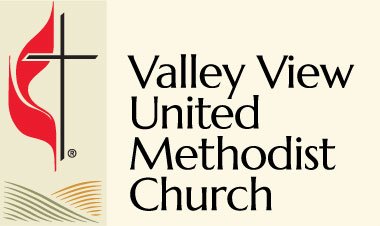All Good Christian’s Believe…
This past Sunday as a portion of the congregation gathered to hear from each other regarding disaffiliation, I interjected with a point that I believe should be its own article, so, here it is.
The statement all good Christians believe is a dangerous statement. There are very few things that can follow that and get across the board ecumenical approval. Very few.
I know one that would seem obvious, all good Christians believe that God loves them*, even fails this little litmus test. There are certain faith traditions that hold with the idea of an elect, that there are people chosen by God to go to heaven and if they chose God, they would receive that gift of eternal life. And others who believe in double predestination which means that your eternal fate is sealed from birth and nothing you do or don’t do can interfere with that divine decision. Hard to argue that God loves you if you think that someone is predestined to be kept out of heaven. And scripture even leaves some questions on this one. God so loved in the world in John 3:16, but we also know in Matthew that when Christ sits in final judgment there will be a dividing of the peoples as well as every time that Christ refers to being chosen as one of God’s people. And I know, final judgment does not equal loved or not loved, but it does leave some questions.
And then there’s the Trinity. Did you know that the concept of Trinity as we know it does not appear anywhere in scripture? We know that Christ told the disciples that an advocate would come after, some attribute Wisdom (and that is with a capital W) to the Holy Spirit in Proverbs, and the Spirit hovering over the waters as the Holy Spirit so the Holy Spirit is all throughout scripture. John tells us the Word (capital again) was with God in the beginning and most understand the Logos to be Christ. And if you read Genesis in the original Hebrew, there is some argument about how Genesis 1:1 is to be translated. Is it “in the beginning when God created the heavens and the earth” or “When God was creating the heavens and the earth” or “In the beginning when we created the heavens and the earth”. There’s evidence for the Trinity all throughout scripture, but it is never explained with the same model that we use now. The model we have now is attributed to the Council of Nicea, 325 CE. Tertullian is the early church father given credit for this understanding. And although this is no longer a discussion within the church, there was a time when it was a divisive and dividing issue. So, maybe all good Christians do believe in the Trinity. It has certainly made its way into the creeds.
Others are firmly rooted in scripture. All good Christians believe that divorce is a sin.* Matthew 5:31-32 make the limits for divorce so strict most divorces do not meet the criteria. There has to be sexual immorality. Often summed up as cheating or abuse. But this strict reading isn’t the most grace filled way to talk about these things. Many churches, including the UMC, have moved away from this strict understanding. Yes, ideally, when the pastor says “let those who God has joined together let no one put asunder” it sticks. A marriage is ideally once and forever. It is serious business that is not to be entered into lightly (and marriage could be its own article about how it used to be very different than today- somehow a vow before tribal leaders and a deity of your choosing became a billion dollar annual industry). But, sometimes, the most grace-filled, God-centered way forward is a divorce. Does that mean that traditions that allow for divorce are no longer good Christian denominations? That those who identify as those denominations are not good Christians? That they have put something above the authority of scripture?
These last two questions are some of the very questions this congregation is working to answer through discernment right now. It doesn’t turn them into people who hate, but, like all good Christians, into people who struggle with scripture. People who seek God’s will. People who try to balance between what is right for them and showing love to neighbor.
My hope and prayer throughout this process has been that the congregation would always think twice before making statements that start with the assumption that their beliefs are right and the only right way to believe. We still have a week to go and plenty of opportunity to continue to live into that scriptural calling to not pass judgment, to love even if not of one mind, to pray together for the future of the congregation, to seek to live fully into God’s peace. And I hope you’ll join me.
*These statements may or may not reflect the views and opinions of the author.
Image is The holy trinity by Jozef Hanula
